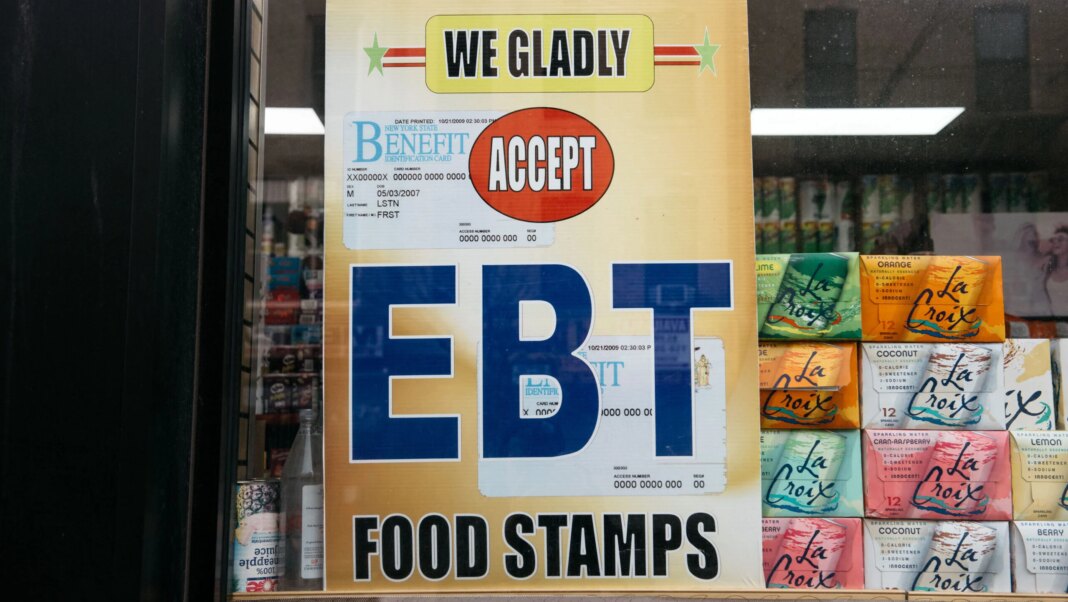Legal Battle Over SNAP Benefits: A Lifeline for Millions at Risk
Several state officials from across the United States and the District of Columbia have initiated a significant legal challenge against the Trump administration over the suspension of food stamp benefits. As millions prepare to face potential food insecurity, the implications of this lawsuit extend far beyond courtrooms, touching the lives of over 25 million vulnerable Americans who depend on the Supplemental Nutrition Assistance Program (SNAP).
The Stakes: Food Insecurity for Millions
The decision to suspend SNAP benefits comes at a critical time. With nearly 42 million people across the country relying on these food aid programs, this sudden halt threatens to push countless families into the depths of food insecurity. The state officials involved in the lawsuit argue that this move is unlawful and imperils the health and well-being of citizens from various states, including California, New York, Illinois, and Vermont, among others.
Legal Action: A Call for Immediate Relief
State leaders are urging a federal judge to take swift action, asking for an order to mandate the Department of Agriculture to restore SNAP benefits for November. Their request invokes a contingency fund—an essential reserve meant to ensure that assistance continues undisturbed. The urgency of this matter is underscored by the looming governmental shutdown, which exacerbates the challenges faced by low-income families.
Health Implications of Withheld Benefits
In their lawsuit, state officials highlight the severe repercussions of cutting off SNAP benefits. They cite the adverse health outcomes that accompany food insecurity, particularly among children—issues such as poor concentration, malnutrition, and even mental health challenges like depression and behavioral problems. “Shutting off SNAP will cause deterioration of public health and well-being,” they argue, emphasizing that states will bear the consequences of these outcomes. The risk extends beyond immediate hunger, intertwining with broader public health concerns.
Government’s Stance: Blame and Budget
The Department of Agriculture has defended its position, stating it cannot tap into reserve funds, which total nearly $5 billion. They attribute the suspension of food stamp payments to political gridlock, specifically criticizing Democrats for failing to support a House-passed stopgap bill aimed at reopening the government. “The well has run dry,” was the stark statement issued, indicating a refusal to utilize existing resources to support struggling families.
Bipartisan Efforts: A Collaborative Response
The shutdown and its impact on SNAP benefits have caught the attention of lawmakers from both major political parties. Notably, Sen. Josh Hawley, a Republican from Missouri, stepped forward with a bill designed to ensure that SNAP funding continues during the government shutdown. This initiative has drawn bipartisan support, with ten Republican senators backing the proposal alongside Democratic Senator Peter Welch. This coalition highlights a shared concern across ideological lines—people’s access to food should not be further jeopardized during times of governmental dysfunction.
Protecting Families: Voices of Advocacy
New York Attorney General Letitia James has been a vocal advocate in this struggle, emphasizing the critical role of SNAP in combating hunger. “Millions of Americans are about to go hungry because the federal government has chosen to withhold food assistance it is legally obligated to provide,” she stated emphatically. Her assertion underscores a fundamental aspect of this debate: SNAP is not merely a benefit but a vital lifeline for families facing economic hardships.
The Cultural Context: Perspectives on Food Security
This legal confrontation also opens up broader conversations around food security in the United States. The reliance on federal assistance programs like SNAP speaks volumes about the economic divide that exists in society. Many families discover they have few options for nutritious food without this safety net. The ramifications of withholding such assistance extend deeply into communities, affecting everything from school attendance among children to the mental health of parents under stress.
By shining a light on these pressing issues, the states involved in this lawsuit are not only seeking legal redress; they are calling for a renewed commitment to protect those who rely on government assistance to survive. As the case unfolds, the ramifications of the decision will impact millions, demonstrating the profound relationship between policy decisions and human lives.



